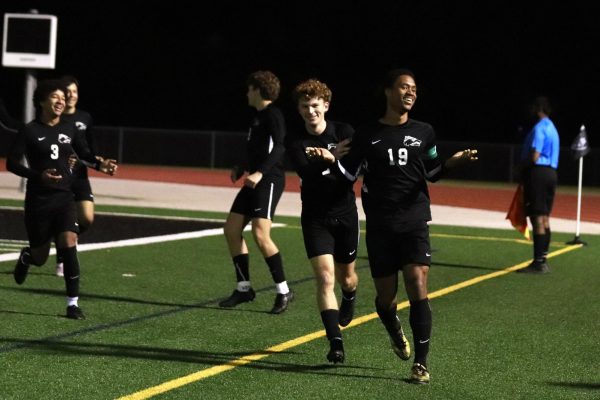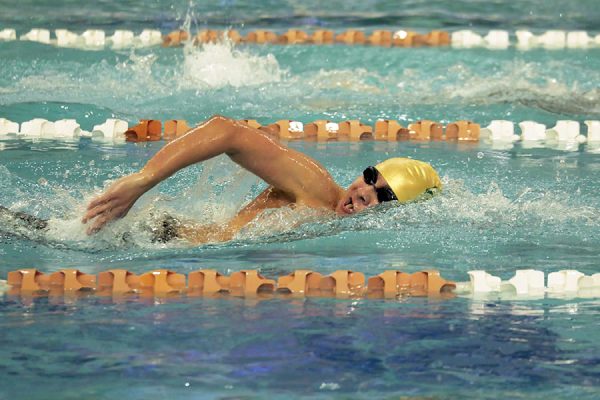Data Devotees
Experiments, Focus Groups, Interviews Begin for AP Research
Working independently in class, AP Research students create follow-up emails to participants. The data collection period is currently open, running until Feb. 25. “I have thoroughly enjoyed my experience as a student in the AP Capstone program,” junior Kaci Craddock said. “I especially appreciate the class environments cultivated by the Capstone teachers and my fellow peers that allow for continual conversation and growth. It is a collaborative and challenging class that allows me to improve my writing and research skills while also pursuing topics that I am interested in and want to learn more about.”
January 20, 2022
The sound of typing hands fills the classroom with the minds of students turning in gear. Watering jugs full and group space exploration discussions ready, student researchers observe participants’ thoughts and actions. With its launch in 2016, the AP Capstone Program has grown in size, encompassing four classes and 30 given graduates each year after the culmination of writing an independent research paper spanning topics from the humanities to the sciences.
At the start of each spring semester in AP Research, the data collection process begins as students share their surveys, experiments, interviews and focus groups across the school demographic or larger. Sufficient data allows these students to make academic conclusions to their research question.
“I think one of the things that is the most exciting is that students have crafted some sort of real research question and for the first time perhaps ever in their school or educational career, they are getting to really understand and see a real research process unfold,” AP Research teacher Lauren Madrid said. “After they have created the methods they believe will answer their question, they actually get to see and gather real data and find an answer to a question that perhaps has never been asked before.”
Junior Eliana Garza’s topic entails American public perception of space exploration and how it impacts the American perception of humanitarian crises. She pulled inspiration to research this due to common interests between her parents that are discussed as a family.
“I first wanted to do something about how the impact of one idea affects another, looking at many examples and eventually coming to space exploration and crises,” Garza said. “My dad is particularly into space exploration and constantly updates me on upcoming events and things like that, so I already knew a bit about space and commercial companies in the industry today. And, interestingly enough, my mom is really into the environment and climate change issues so I am constantly reminded in my house about the difficult times our world is in.”
Another student began with a broad topic that they were equally passionate about, gardening, that evolved over time due to findings and implications in the existing body of literature. Junior Kaci Craddock chose the method of an experiment to collect data that aims to determine whether being involved in a school garden — through maintenance, watering and planting — improves a student’s perception of academics and performance in class.
“I discovered that much of the research examined the direct academic effects of student involvement in garden-based settings through cognitive retention tests and traditional grading systems. Much of it did not concern the mental and psychological benefits of gardening and the potential for gardening on school grounds to promote student wellbeing,” Craddock said. “Originally, I wanted to focus on how vegetable gardens in suburban areas affected homeowners, but while reading and gathering more studies, I decided to shift my focus to school gardens.”
Last year, conducting research within the program was all completed virtually. Similar incentives to encourage school-wide participation remain for this year, including community service hours for clubs and honor societies.
“To have students in person, even following COVID-19 protocol like wearing masks, during an experiment or focus group will just make that whole process easier,” Madrid said. “The fact that we actually have people in person and can meet during DEN or before or after school, will make it easier for both the researchers and the participants to actually participate. “[For the majority of students, this is] their first chance to participate in some real research. The fact that your answers to a survey counts toward data for a real research question, I think is really interesting.”
Craddock is working with both Timberwolves for the Environment and Student Council to continue the Garden Initiative for continual restoration of the school gardens even after her research is complete.
“Currently as I begin my experiment, I hope to interest as many student volunteers as possible to participate in my experiment,” Craddock said. “I also hope to end with conclusive data that will help substantiate my research paper. [The aim for the Garden Initiative] is to be successful and promote more involvement and interaction with the school gardens going forth.”
Topics can also show concern for greater world issues facing humanity today. According to Garza, her topic will be evermore present in the future where both political involvement and education could play a role.
“I’m hoping to understand the thoughts behind people who have a current say in politics,” Garza said. “I want to know how educated they are on these topics and how much concern there is for their future. Because both, space exploration and climate change, are very much going to be in our future.”
Students looking to participate in any and all research can find all survey links on the Capstone Research Website. Future sophomore and juniors interested in the research-based diploma program will find both courses available on their class course selection.
“With this school being as competitive as it is, it is one of the best ways to distinguish yourself from your other classmates on your transcript and on college applications,” Madrid said. “Secondly, every single student that has graduated with the Capstone certificate or diploma and gone off to college has said it is the two singular classes that they took in high school that prepared them to take any of their classes in college because it really helps them to understand how to write longer, academic papers and to present academically [for more] than just a few minutes in class.”

![Posing with their UIL State Trophy, the Robolobos Van Halen Team beams with excitement after their win. “It was a team effort,” junior Noah Vo said. “I was happy because something happened in the first match and the match was also really close. So [when] they finally revealed it, I was pretty happy.” Photo courtesy of Amy Lovelace](https://cphswolfpack.com/wp-content/uploads/2025/05/IMG_0910-EDIT-1200x723.jpg)
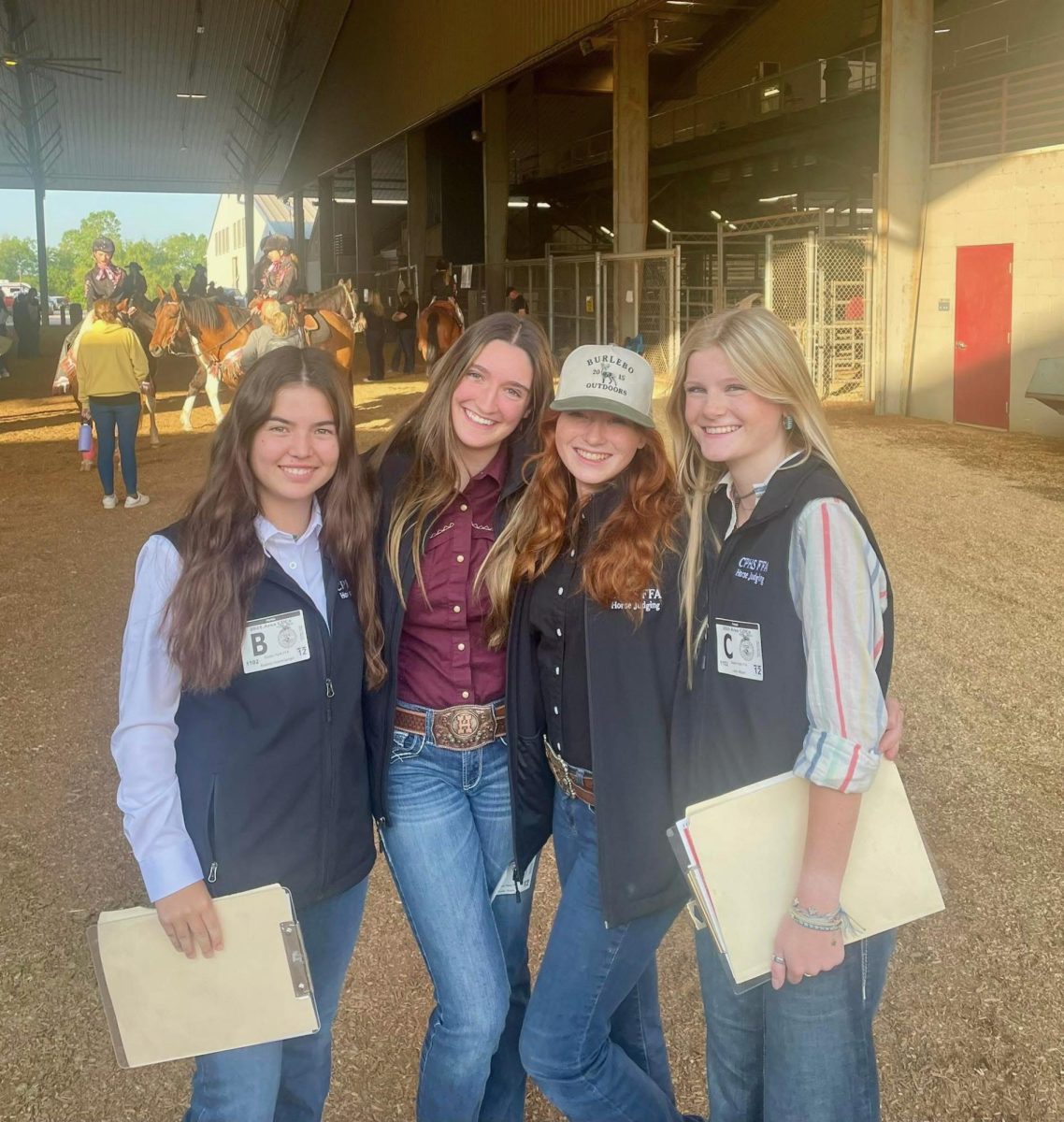
![Broadcast, yearbook and newspaper combined for 66 Interscholastic League Press Conference awards this year. Yearbook won 43, newspaper won 14 and broadcast took home nine. “I think [the ILPC awards] are a great way to give the kids some acknowledgement for all of their hard work,” newspaper and yearbook adviser Paige Hert said. “They typically spend the year covering everyone else’s big moments, so it’s really cool for them to be celebrated so many times and in so many different ways.”](https://cphswolfpack.com/wp-content/uploads/2025/05/edited-ILPC.jpg)











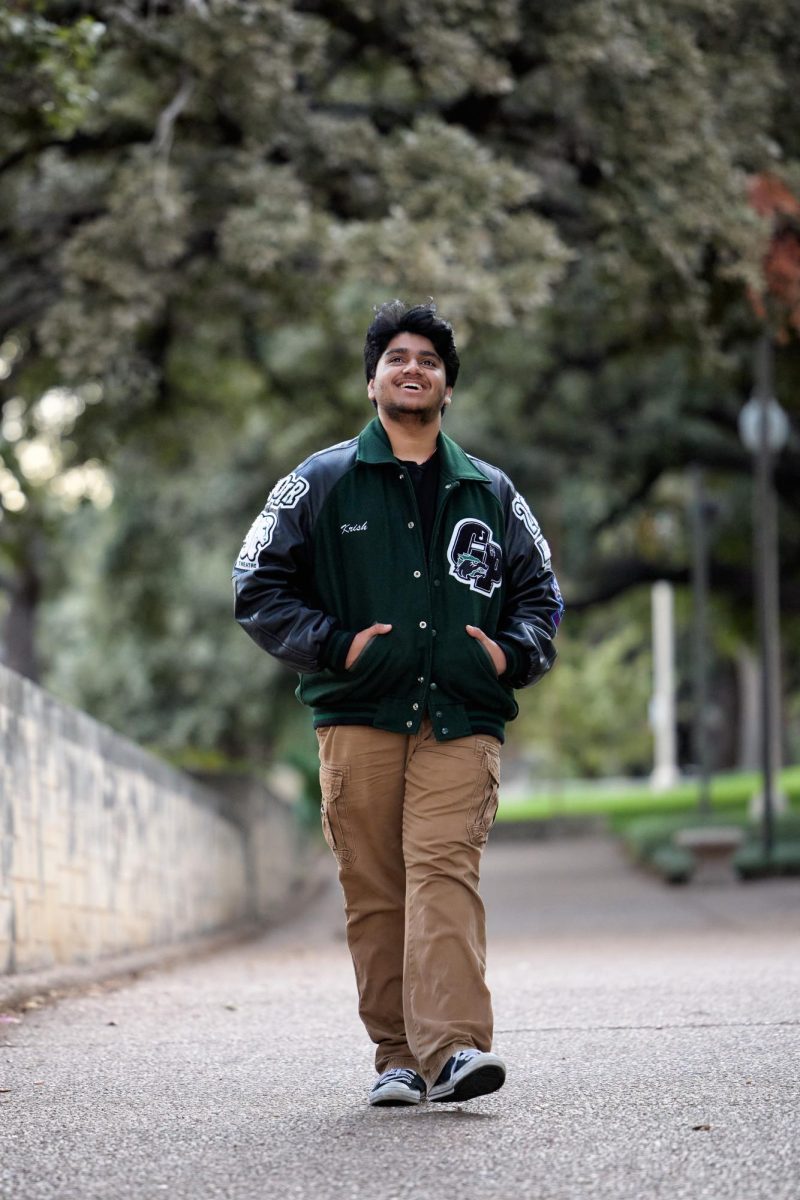

![Bringing her arm over her head and taking a quick breath, junior Lauren Lucas swims the final laps of the 500 freestyle at the regionals swimming competition on date. Lucas broke the school’s 18-year-old record for the 500 freestyle at regionals and again at state with a time of 4:58.63. “I’d had my eye on that 500 record since my freshman year, so I was really excited to see if I could get it at regionals or districts,” Lucas said. “ State is always a really fun experience and medaling for the first time was really great. It was a very very tight race, [so] I was a bit surprised [that I medaled]. [There were] a lot of fast girls at the meet in general, [and] it was like a dogfight back and forth, back and forth.” Photo by Kaydence Wilkinson](https://cphswolfpack.com/wp-content/uploads/2025/03/Kaydence-2.7-23-edit-2.jpg)
![As the support team sits and poses for a photo in the cafeteria with the counseling team they eagerly wait to start their day. "We [all] seem to be a team, I get up every day and there's days where I don't want to go to work today, but I'm thankful that I have a job and I'm blessed to have what I have," Christopherson said. Photo Courtesy of Julie Weltens.](https://cphswolfpack.com/wp-content/uploads/2025/01/AF9E8470-10D7-4C91-BF28-EC8F86BAB66C-1200x852.jpeg)
![Officer Stephanie Cash is in her second year as an SRO at CPHS. “Seeing [students] grow over the years has been kind of cool,” Officer Cash said. “Freshmen that [are] all over the place and then in the next couple of years get a little more squared away and go to class and do work and start thinking about the future. Being a part of a student's growth is the best way to measure my success as an SRO.” Photo Courtesy of Cedar Park Police Department's PIO, Alicia Gallagher.](https://cphswolfpack.com/wp-content/uploads/2024/12/CPHS-SRO-900x1200.jpg)


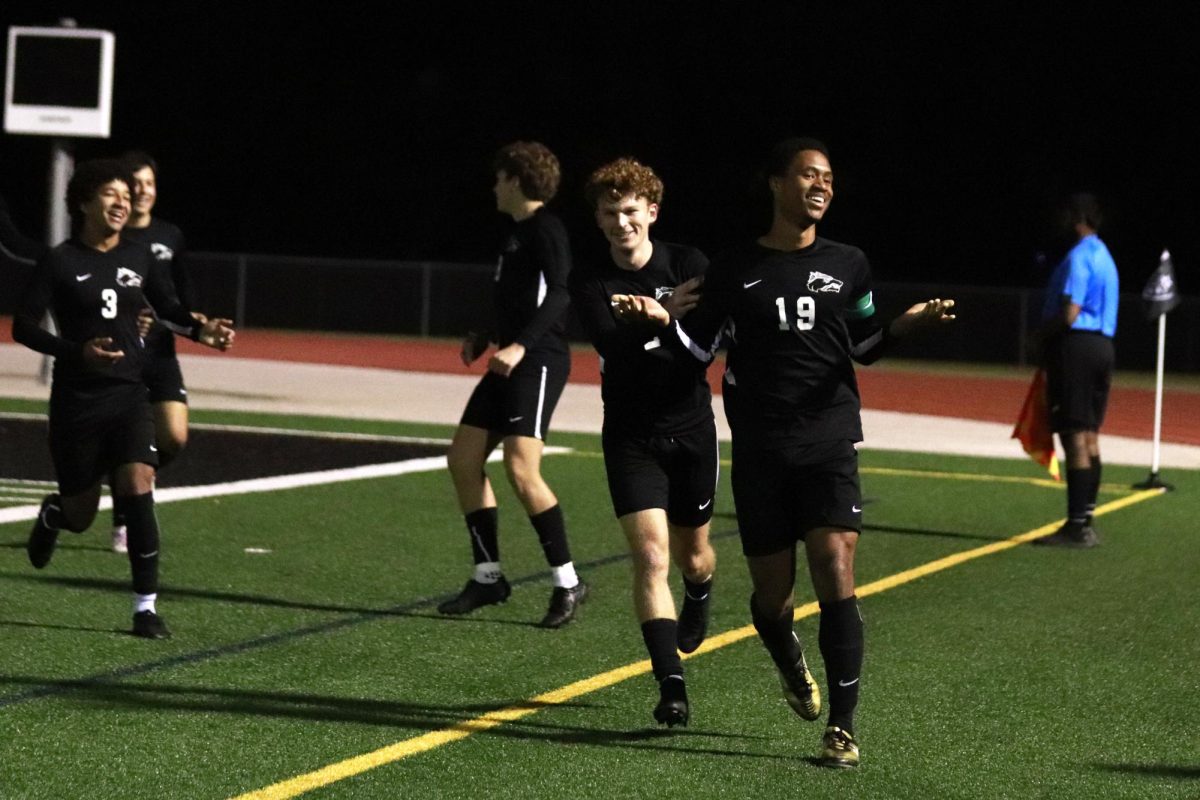
![Taking a breath as he raises his arm up and out of the water, sophomore Kaden Padilla swims the 500 freestyle at the UIL state meet on Feb. 21-22. Padilla placed 10th overall and second in the consolation final in the event, dropping two seconds. “My family was there, so being able to drop time for them was really special,” Padilla said. “It was awesome [finding out I advanced to the consolation finals]. I wasn’t expecting it, and I was very surprised. My parents being there definitely made me a lot happier knowing they got to see me swim in finals.” Photo by Skyler King.](https://cphswolfpack.com/wp-content/uploads/2025/03/kaden-padilla.jpg)

![Three defenders try to stop senior point guard Hope Edwards before the ball leaves her hands. The girls basketball team faced Liberty Hill on Feb 21, losing 58-40. “[My season was] definitely bittersweet,” Edwards said. It's definitely sad [because] I'm gonna miss all my teammates, my coaches and just the whole CP environment.”](https://cphswolfpack.com/wp-content/uploads/2025/03/julia-128-1200x800.jpg)













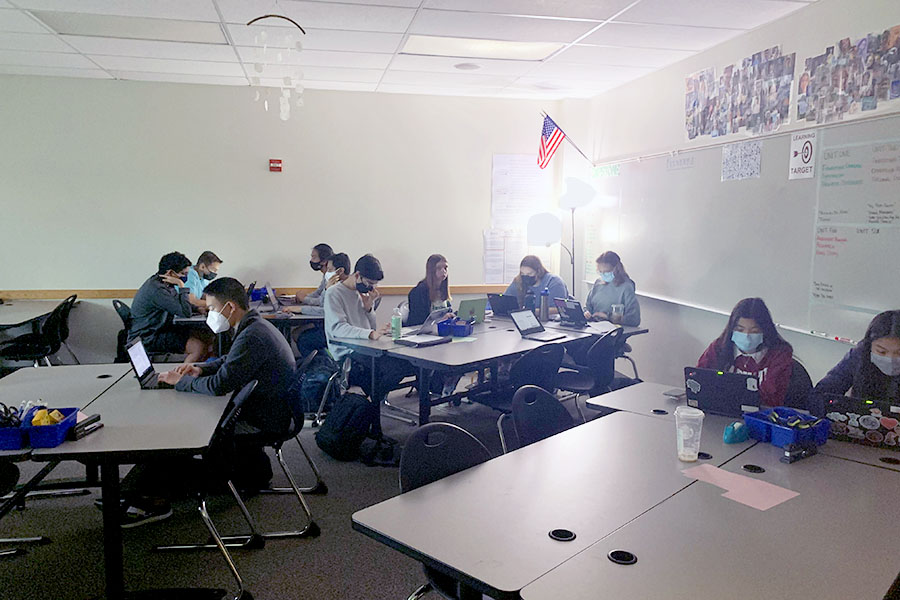
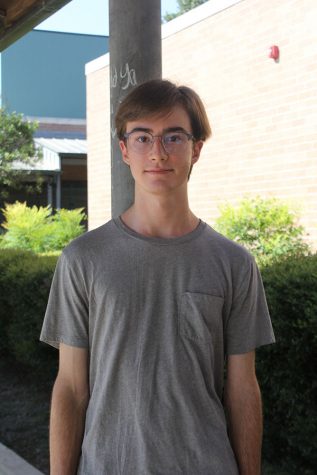
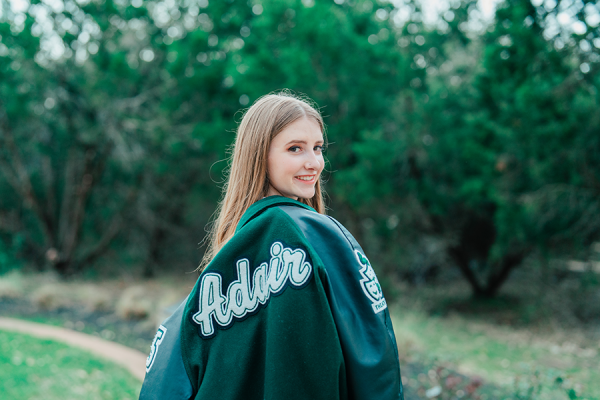

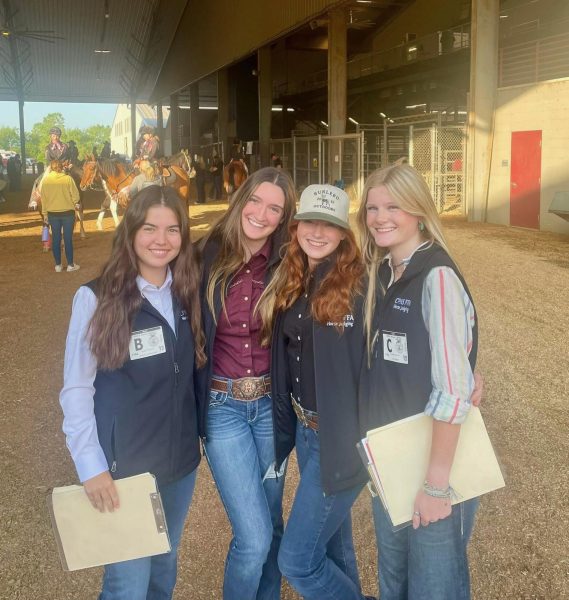
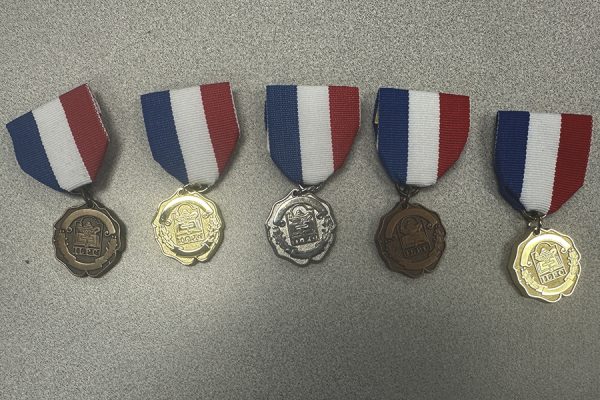


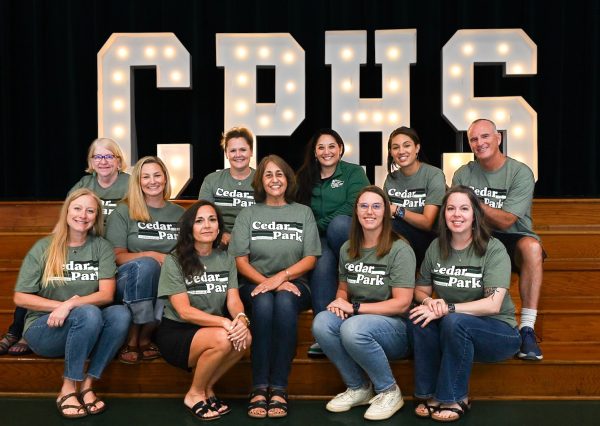
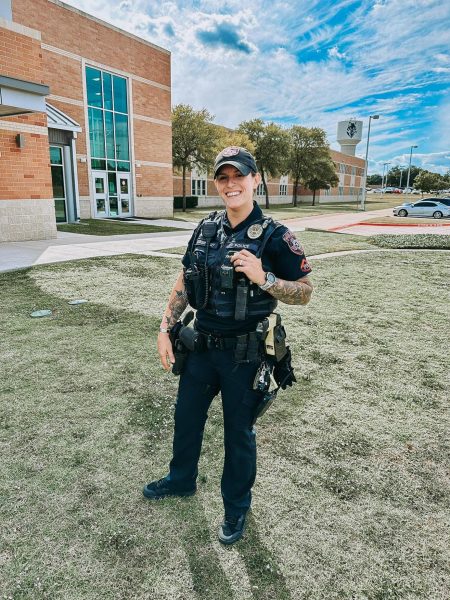

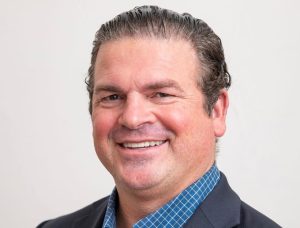


![Whereas classical art depicts a scene and tells a story, often of mythology or religious references, artists of modern times focus more on expressing ideas and feelings. The style of back then has since been replaced by splashes of color, curvy lines and other new art techniques. "[Over time] I think art has shifted more to emotion rather than human beauty, " sophomore Braeden Murray said. "Modern art is significantly more abstract and doesn't have an obvious theme in mind. Very simple shapes, no people to be seen, and more colorful. I think in the older [time period] the art was definitely more human based, with biblical [references] while modern art is more emotion based because it's not depicting a particular scene or action that's happening.”](https://cphswolfpack.com/wp-content/uploads/2023/02/2023-vs-1503-300x200.png)

